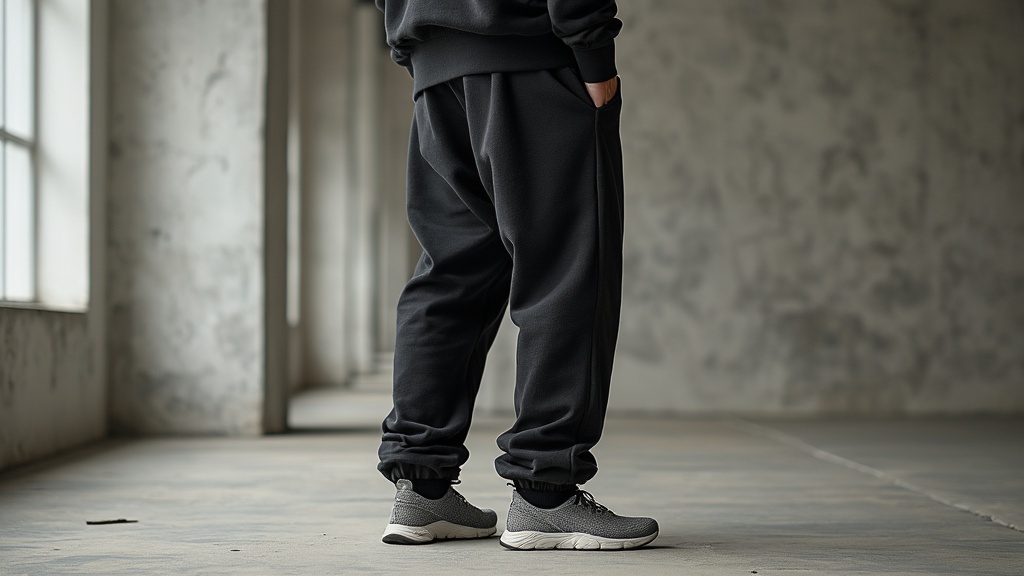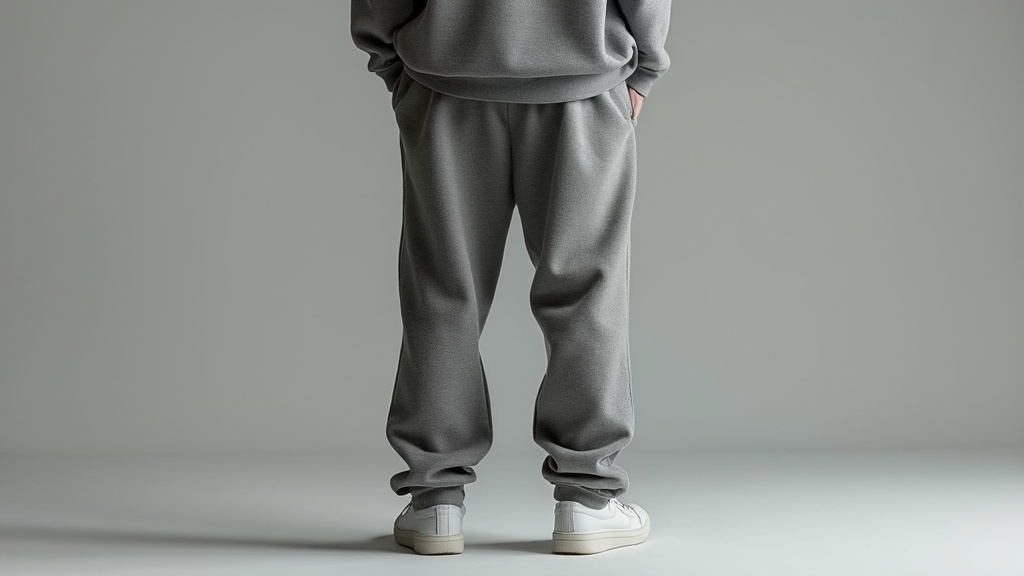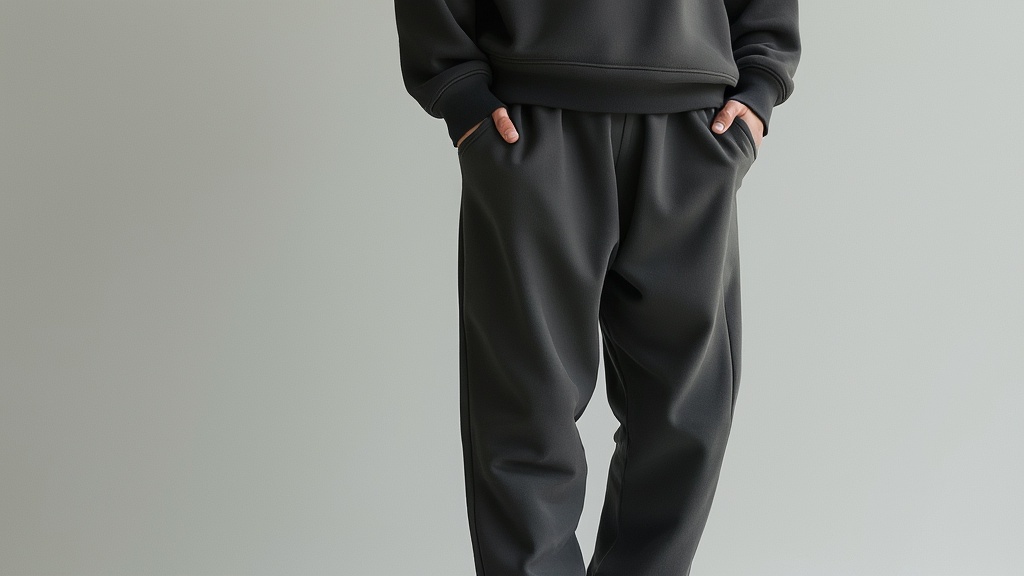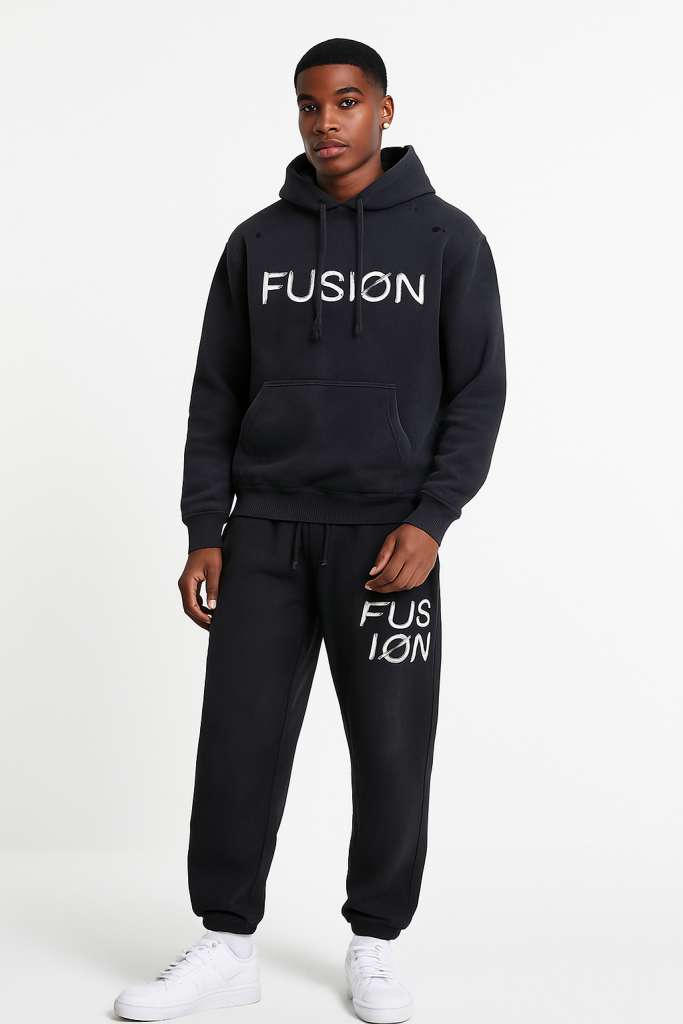Tracksuit Materials Cotton vs Polyester: Must-Have 10

10 Astonishing Facts About Tracksuit Materials Cotton vs Polyester
Introduction
When it comes to high quality Track Suits for Men—especially those with a sharp, logo-free look—the battle of tracksuit materials cotton vs polyester is fierce. The way a fabric feels, breathes, and wears can make or break your experience, whether you’re working out or just relaxing.
Men who value comfort, durability, and style need to understand how slim fit and regular tracksuit styles perform with each material. This guide dives deep into tracksuit materials cotton vs polyester, exposing the truths hiding between the threads.
Understanding Tracksuit Materials Cotton vs Polyester
Tracksuit materials cotton vs polyester are more than just buzzwords on care tags. Each material boasts distinct advantages and drawbacks, especially when applied to slim fit or regular tracksuits.
Cotton, a natural fiber, is renowned for its softness and breathability. Polyester, a synthetic, often leads on durability and moisture management. Before choosing your next high quality tracksuit, it’s essential to know the facts—and the feel—of each.
1. Breathability: Who Wins in Real Life?
Cotton is naturally breathable, allowing air to circulate around your skin. This makes it a strong choice for men who value cool comfort, especially in a regular fit tracksuit during warmer months.
Polyester, however, can sometimes trap heat, especially in low-end fabrics. But modern weaves and blends allow some polyester tracksuits to get close to cotton’s airflow. Try the “hand test”: press the fabric to your mouth and exhale. If air passes easily, breathability is high.
2. Moisture-Wicking: Stay Dry or Get Damp
The ability to pull sweat away from the skin is where polyester shines. In tracksuit materials cotton vs polyester, polyester’s hydrophobic fibers wick moisture, keeping you drier during intense workouts or runs.
Cotton absorbs moisture instead, often feeling heavy and damp after exercise. If you’re planning high-output activities in your slim fit tracksuit, polyester typically keeps sweat at bay. Measure after a workout: polyester dries 2–3 times faster than cotton.
3. Slim Fit vs Regular: How Materials Shape the Silhouette
Slim fit tracksuits demand fabric that holds its shape. Polyester’s resilience means it resists sagging and keeps a sharp, tailored look—even after several wears. This is crucial for a modern, athletic silhouette.
Cotton offers a softer drape, which suits a relaxed, regular fit. However, cotton’s tendency to stretch and lose shape can make a slim fit look baggy over time. Check the seams after five wears: has the fit relaxed? If yes, you’re likely wearing cotton.
4. Comfort Over Time: Softness That Lasts
It’s hard to beat the natural softness of high quality cotton, especially for men with sensitive skin. Cotton tracksuits start soft and get even softer with each wash.
Polyester can feel slick or “plastic” at first but won’t pill as easily. Some premium polyester blends are brushed to mimic cotton’s hand-feel. Rub the sleeve against your cheek: does it feel cozy or synthetic? That’s your comfort check.
5. Durability: Which Survives More Washes?
Polyester is the workhorse of the tracksuit world. It shrugs off repeated laundering, resists wrinkles, and rarely shrinks. If you want a tracksuit that looks new after months of wear, polyester is often the winner.
Cotton, while comfortable, tends to pill, fade, or shrink after repeated washes—unless you choose a high-quality, pre-shrunk option. Check the label after 20 washes: polyester still fits, cotton may not.
6. Eco-Friendliness: Cotton, Polyester, or Neither?
Tracksuit materials cotton vs polyester both have environmental impacts. Traditional cotton demands vast water and pesticides, while polyester is made from petroleum and sheds microplastics.
Some brands now offer organic cotton or recycled polyester, lessening their footprint. To check, look for certifications like GOTS (cotton) or rPET (polyester). If sustainability drives your purchase, ask: does your tracksuit use eco materials?
7. Color and Fade: Vibrancy That Lasts
Polyester holds dye exceptionally well, giving tracksuits bold, lasting colors—even after many washes. Cotton, unless treated, can fade, especially in sunlight or with harsh detergents.
A simple test: compare a new and old tracksuit of each material. Does the color still pop, or has it dulled? Polyester usually keeps its vibrancy, giving you longer-lasting style.
8. Weight and Feel: Light vs Substantial
Cotton tracksuits feel substantial and cozy, which many men love for loungewear or cooler weather. Polyester is lighter, often making it the fabric of choice for athletes or those who prefer a barely-there feel.
Hold both in your hands: which feels heavier? If you crave warmth and “hug,” cotton delivers; for lightness and agility, polyester rules. Weight is a quick clue to the tracksuit materials cotton vs polyester debate.
9. Care Requirements: Laundry Realities
Polyester tracksuits are low-maintenance: they dry fast, resist shrinking, and rarely need ironing. Cotton, in contrast, must often be air-dried or ironed to prevent wrinkles and shrinkage.
Check your laundry basket: does one tracksuit spend more time waiting to be ironed? If so, it’s likely cotton. For men who value time and ease, polyester tracksuits are often the practical option.
10. Price and Perceived Value
Generally, polyester tracksuits are more affordable, but high-end performance blends can rival cotton in cost. Premium cotton—especially organic or combed—often comes with a higher price tag, but many men see this as an investment in comfort.
To gauge value, compare cost-per-wear over six months. Does your more expensive cotton tracksuit still feel and look better? Or does the polyester set outperform it, justifying its price? That’s the true value behind tracksuit materials cotton vs polyester.
Comparison Table: Tracksuit Materials Cotton vs Polyester
| Feature | Cotton | Polyester |
|---|---|---|
| Breathability | Excellent | Moderate (excellent in technical blends) |
| Moisture-Wicking | Poor | Excellent |
| Shape Retention | Moderate | Excellent |
| Comfort | Very high (softer feel) | High (may feel synthetic) |
| Durability | Good | Excellent |
| Eco Impact | High (unless organic) | High (unless recycled) |
| Color Retention | Fades over time | Holds color well |
| Weight | Heavier | Lighter |
| Care | More demanding | Easy |
| Price | Higher (premium options) | Generally lower |
FAQ: Tracksuit Materials Cotton vs Polyester
Which is better for a slim fit tracksuit: cotton or polyester?
Polyester is generally better for slim fit tracksuits because it holds its shape well, resists sagging, and provides a crisp, tailored look. Cotton, while soft and comfortable, can stretch out over time, making slim fits appear baggy after several wears.
Are cotton tracksuits breathable enough for workouts?
Cotton tracksuits are breathable and feel cool against the skin, but they struggle to wick away sweat. For light workouts, cotton is fine. For intense exercise, polyester’s moisture-wicking is usually more comfortable and practical.
Do polyester tracksuits cause skin irritation?
Most people wear polyester tracksuits without issues. However, those with sensitive skin may notice irritation, especially with cheaper, rougher weaves. Look for premium polyester blends or try cotton if you have skin sensitivities.
Which material is more eco-friendly: cotton or polyester?
Conventional cotton and polyester both have environmental downsides. Organic cotton and recycled polyester are greener options. Always check for certifications like GOTS for cotton or rPET for polyester to ensure a lower environmental impact.
How can I tell if my tracksuit is high quality?
Examine the stitching, fabric weight, and softness. High quality tracksuit materials cotton vs polyester feel substantial, resist pilling, and maintain shape after washing. Avoid thin, scratchy fabrics and inspect seams for tight, even stitching.
Conclusion
The debate over tracksuit materials cotton vs polyester is anything but simple, especially when balancing slim fit versus regular styles. Cotton offers natural comfort and breathability, while polyester excels in moisture management, durability, and shape retention.
Ultimately, your perfect tracksuit depends on your priorities: comfort, care, sustainability, or sporty performance. Seek out high quality Track Suits for Men that match your lifestyle and values.
Ready to find your ideal tracksuit? Explore more on Fusion Clothing UK for high quality options. For an in-depth look at textile innovation, check Velorum UK. Make your next choice with confidence—choose the best in tracksuit materials cotton vs polyester and feel the difference.




